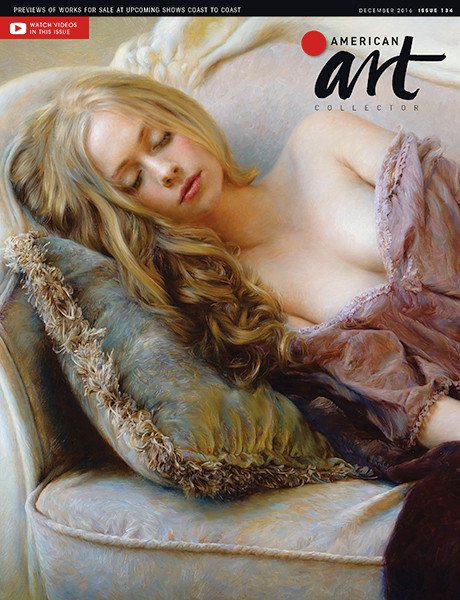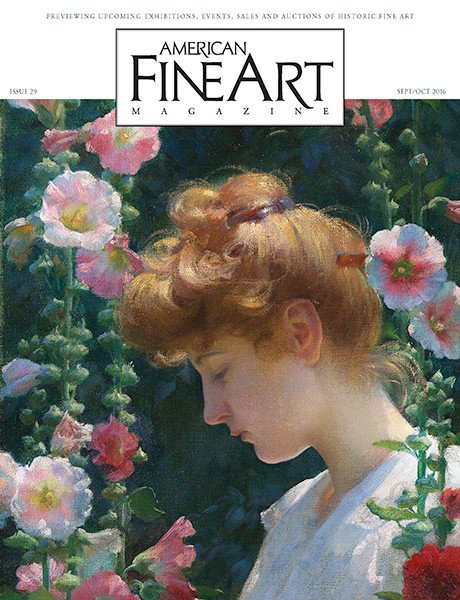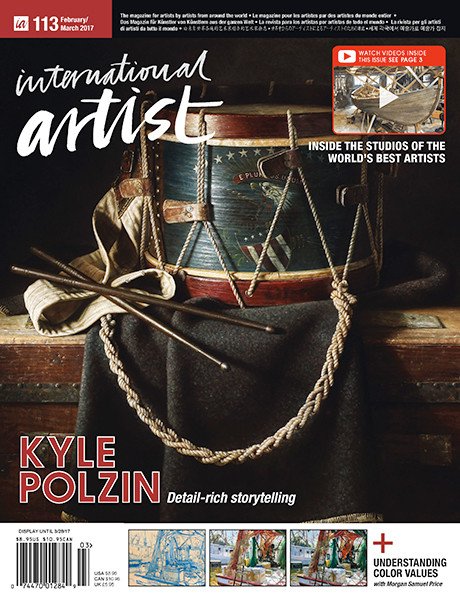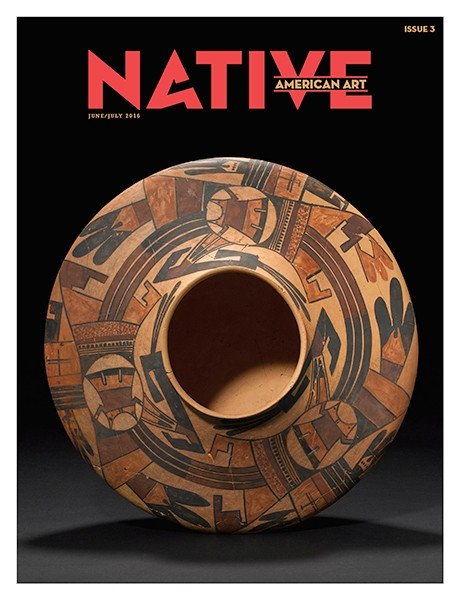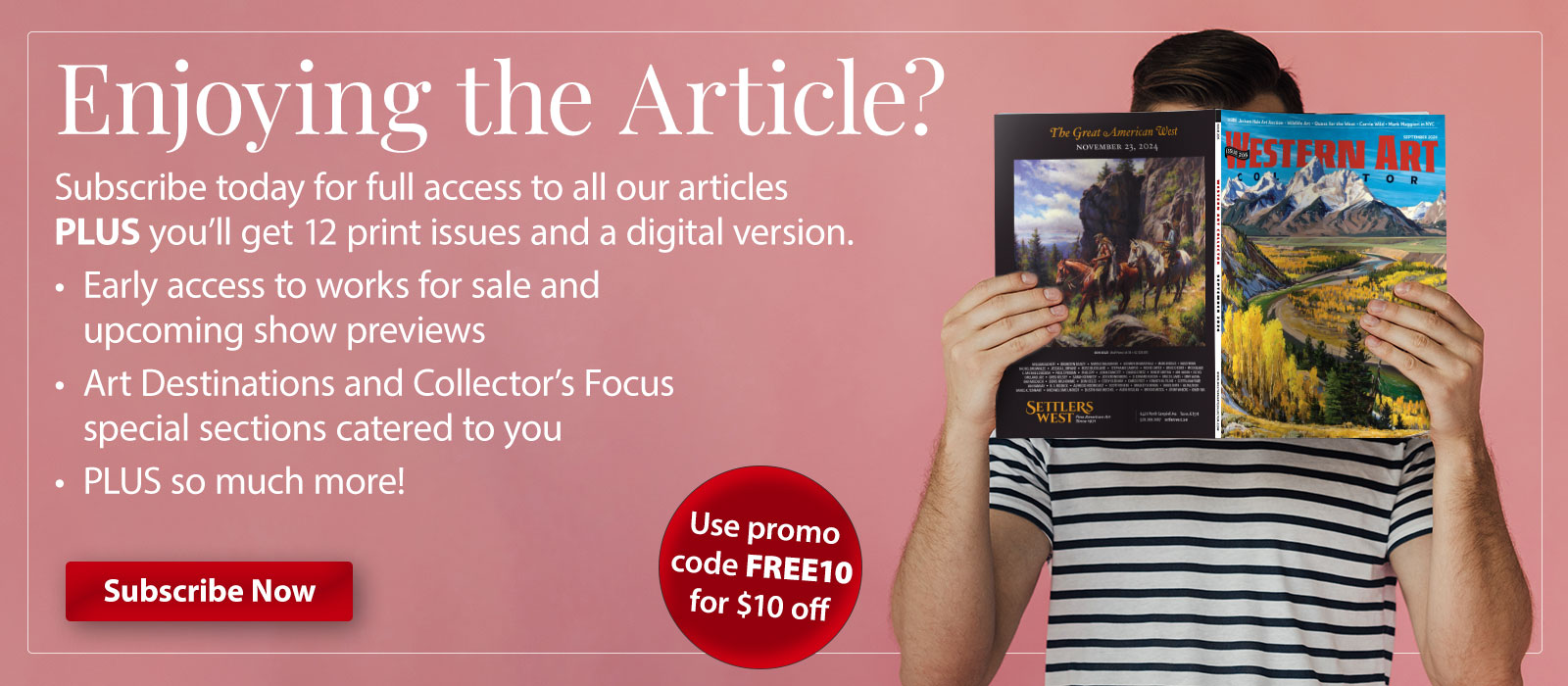The 3,000-foot-deep Little Colorado River Gorge appears suddenly on the plains of the Navajo Nation in Arizona.
Brett Allen Johnson says it’s one of his favorite subjects. In his 50-by-100-inch painting Two Worlds, he approaches it boldly. “I set out with the idea to create the feeling of standing next to this gorge in this otherworldly landscape,” he explains. “I could paint how it looks. It’s cool when you stand there and see the strong shapes of the sedimentary rocks. I just love the shapes of it. Something about those strong shapes speaks to me, their inner construction like building blocks. I wanted to paint the essence of what I feel there.”
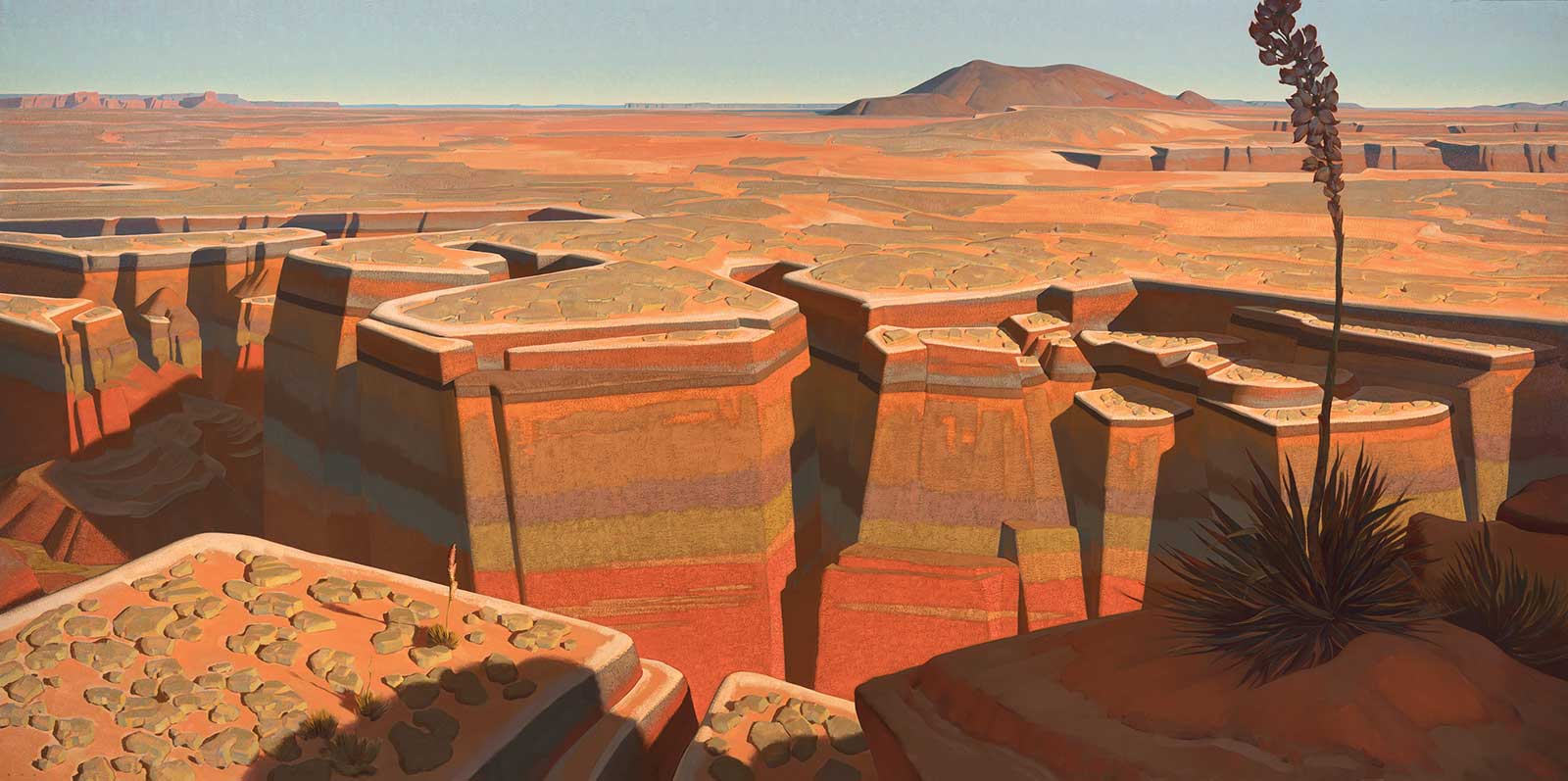 Two Worlds, oil, 50 x 100 in.He continues, “I was messing around with thumbnail sketches and wanted to sense the mass and the gravity of the big shapes. I explore ideas in 2-by-3-inch sketches, super small so I can’t fit in too much unnecessary stuff. In the simple sketches, the successful one has the essentials that make me begin to feel a bit of the truth of the place. In this gorge, the colors are different shades of brown-striped sedimentary rock. But the biggest truth is this unfathomably big rift in the earth. In the painting, it’s more important that it feels like the deep truth of the place, not necessarily the specifics. I painted hotter colors as the canyon gets deeper.” The flower stalk of a yucca leads the eye up above the plain to Shadow Mountain on the horizon.
Two Worlds, oil, 50 x 100 in.He continues, “I was messing around with thumbnail sketches and wanted to sense the mass and the gravity of the big shapes. I explore ideas in 2-by-3-inch sketches, super small so I can’t fit in too much unnecessary stuff. In the simple sketches, the successful one has the essentials that make me begin to feel a bit of the truth of the place. In this gorge, the colors are different shades of brown-striped sedimentary rock. But the biggest truth is this unfathomably big rift in the earth. In the painting, it’s more important that it feels like the deep truth of the place, not necessarily the specifics. I painted hotter colors as the canyon gets deeper.” The flower stalk of a yucca leads the eye up above the plain to Shadow Mountain on the horizon.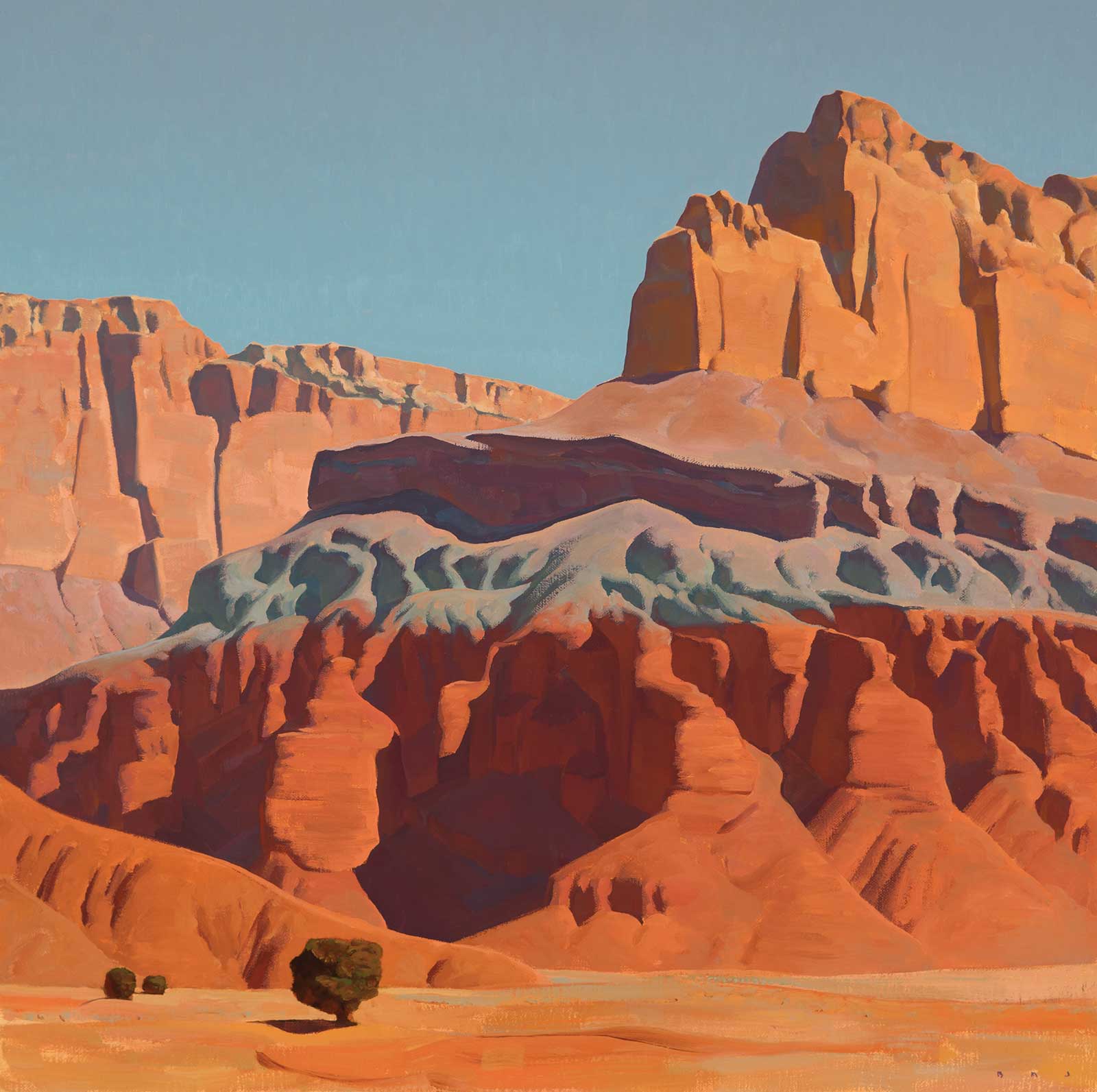
Banded Cliffs, Fruita, oil, 20 x 20 in.
Johnson is an avid reader, often the dense, difficult novels of Cormac McCarthy. Up late one night, reading Blood Meridian, he says, “One passage really made what I wanted from the painting click for me.” The characters are crossing a caldera and Tobin, the narrator and a former priest, observes that, “Ye’d run out upon a little promontory and ye’d be balked about by the steep crevasses, you wouldn’t dare to jump them.” Commenting on the otherworldliness of the landscape, Tobin says, “But someplace in the scheme of things this world must touch the other.”
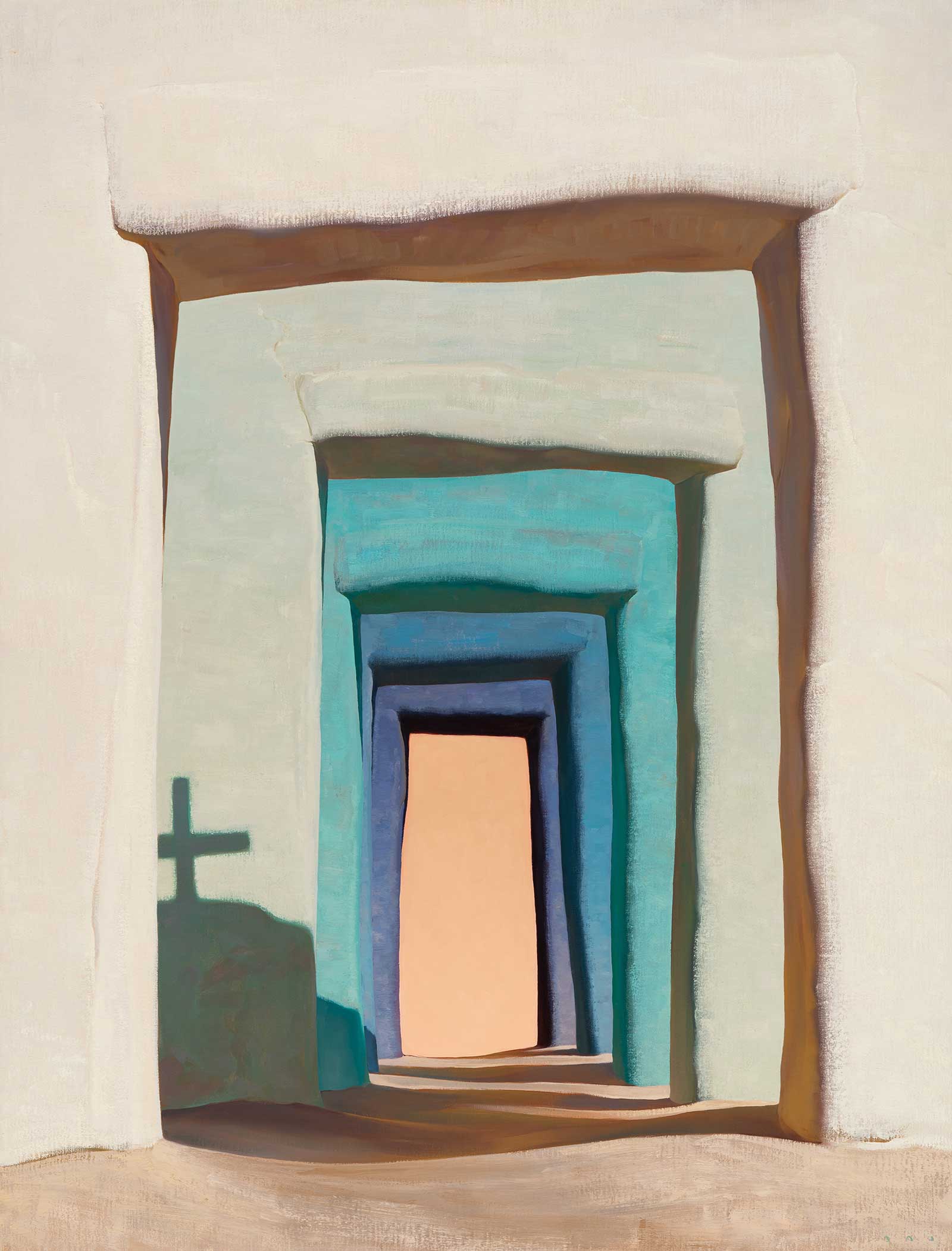
Color & Happiness, oil, 42 x 32 in.
Long before he read McCarthy and one of his often-read favorites, Melville’s Moby Dick, he painted with his grandmother, a watercolor artist in Sedona, Arizona, who had prints of Maynard Dixon paintings on the wall of her studio. “I was more drawn to trucks and motorcycles, though,” he explains. “My grandfather had a framing shop and he put a frame on my monster trucks and made it look cool.”
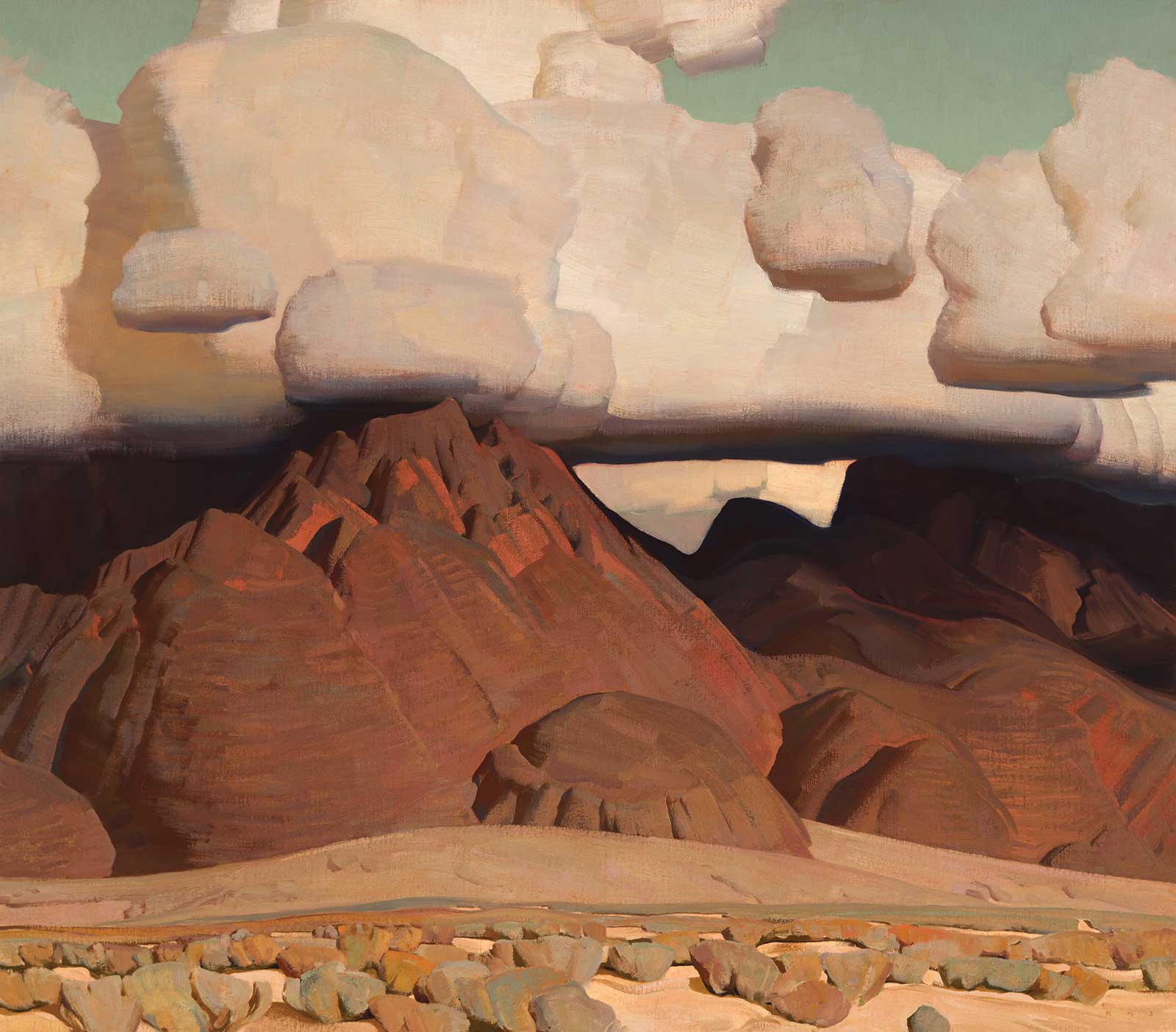
Glass Window, oil, 30 x 34 in.
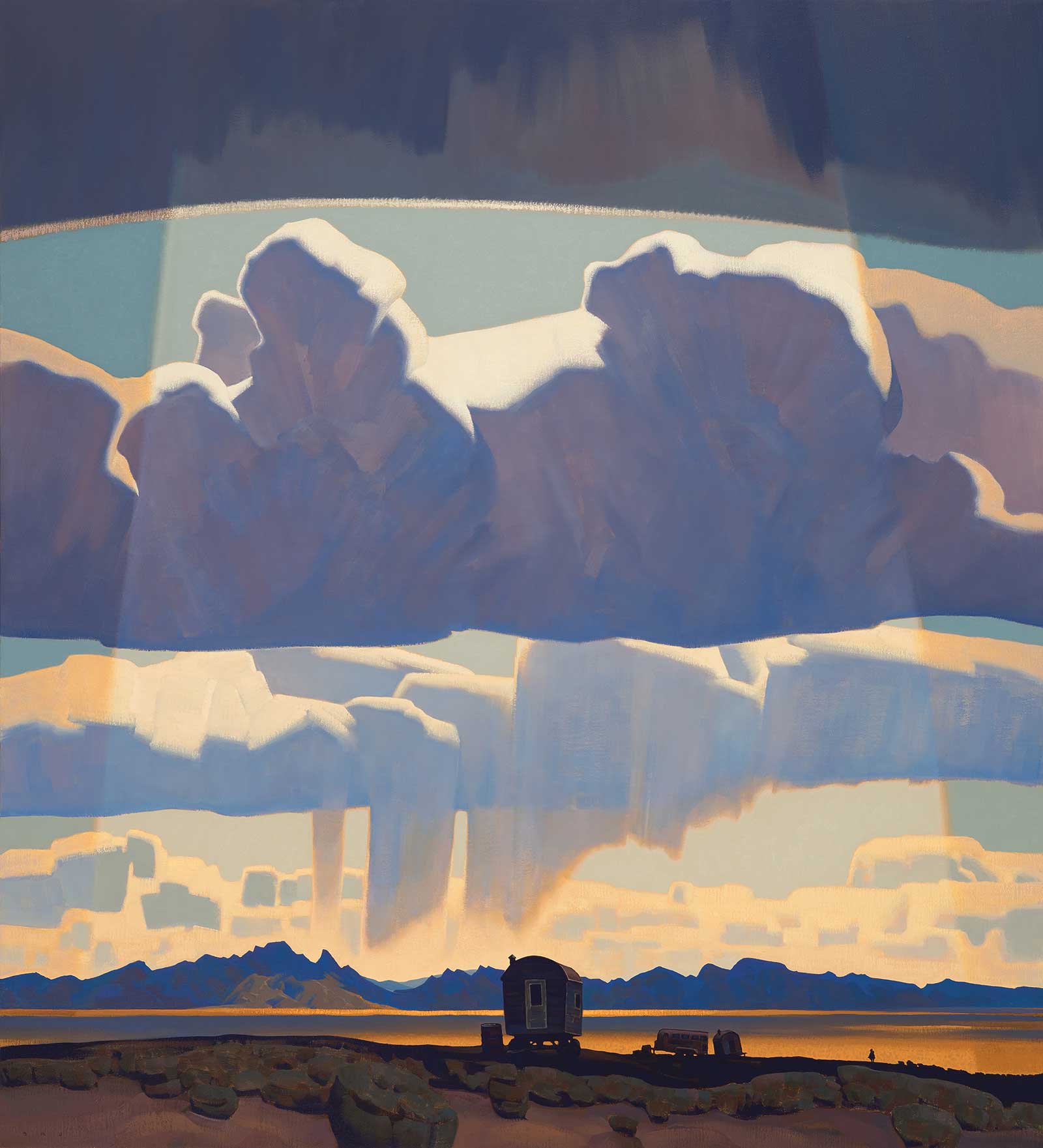
Not Some Other Place, oil, 44 x 40 in.
Johnson studied design in college but when he discovered art history he changed course and left school. He was attracted to the abstract paintings of Mark Rothko and Robert Motherwell and liked the surrealists. When he found the watercolors of Winslow Homer, he admired “the strength and power in his designs. He got me looking at more traditional art. When I saw an exhibition of the art of the Southwest, they were using the subjects I already knew. These badlands and deserts, the arid canyons, the playas and great basins—these are where my work began, where it begins.”
The landscape of the Southwest is inspiration. “I am not often a painter of literal places,” he says. “I regularly invent entire works, or paint them from memory. I like to invite observers into a world which is merely similar to the one they know, an adjacent world.” Places where “this world must touch the other.”
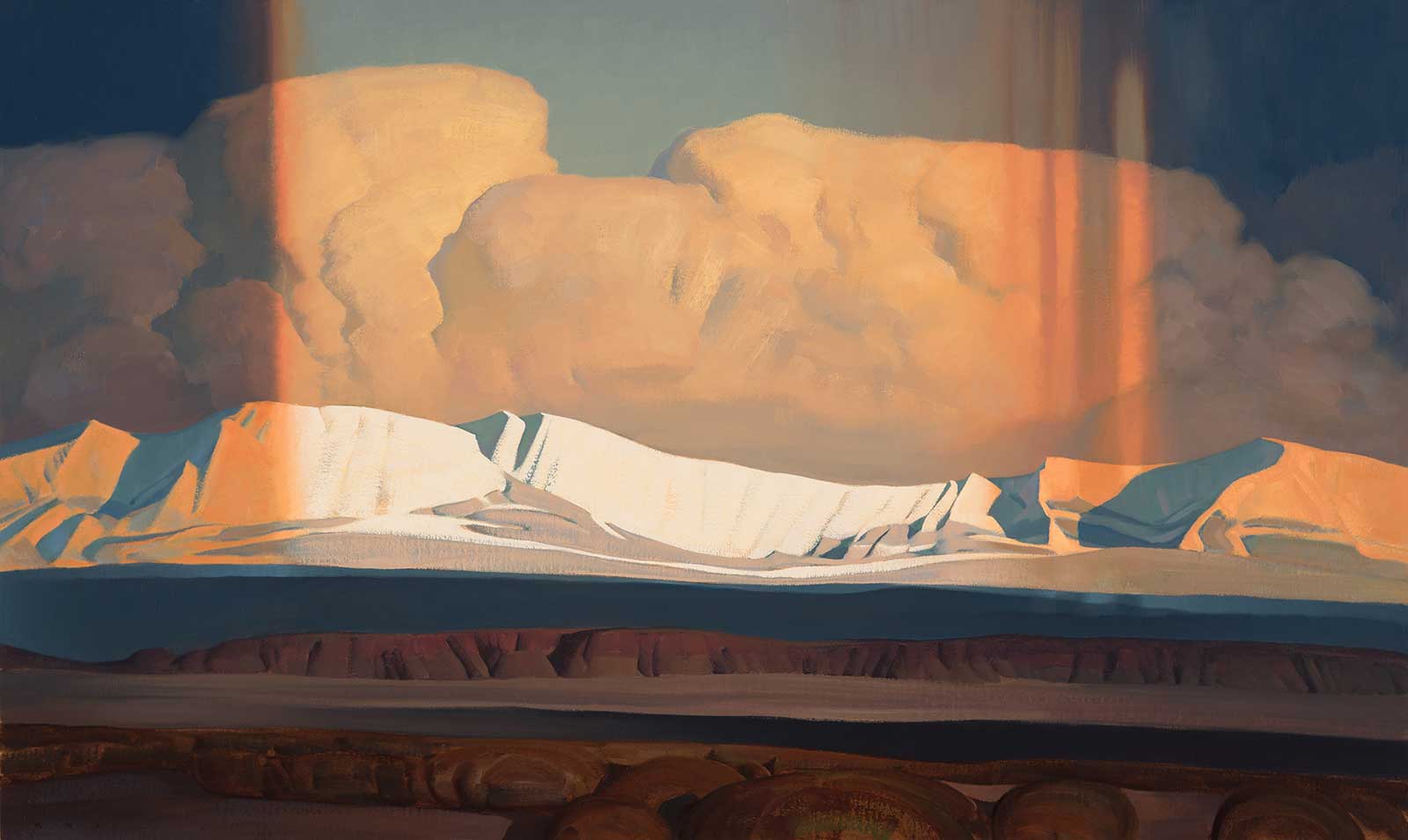
Uinta Veil, oil, 18 x 30 in.
Another favorite place and subject is the church of San Geronimo de Taos at Taos Pueblo, the inspiration for his painting Color and Happiness. “I visited Taos in 2016 and I’ve always found the church doorway special. You stand outside and look through to the church and you stand on the other side and see the pueblo and the Sangre de Cristos. It’s an interesting intersection of cultural ideas. I like to look out at the mountains from that doorway,” he says. “I wanted a simple composition in which everything says what it needs to. If you strip it down too far, you lose the sense of place. I needed a simple concept and the cast shadow of the cross places it at Taos Pueblo.” Nearly a year ago he posted an early study on Instagram and commented, “This is an idea I’ve had kicking around for years, but only recently figured out how to make it work on the plane home from Indy after having some great conversations with my friends.”
Color and Happiness is more refined and suggestive of space and movement. He says, “Sometimes a simple design takes time to figure out.”
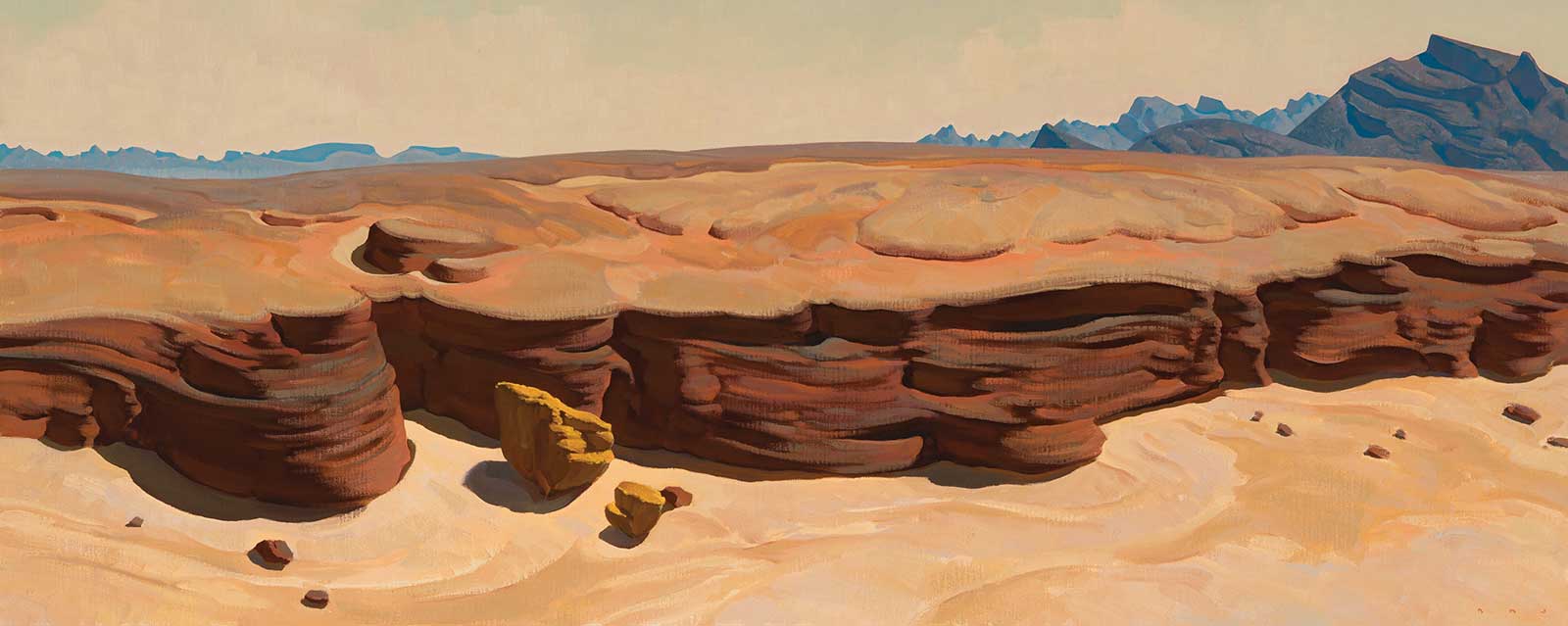
Chocolate Ripple, oil, 16 x 40 in.
An exhibition of his new work, Two Worlds, will be shown at Maxwell Alexander Gallery in Pasadena, California, September 6 through 30. —
Maxwell Alexander Gallery 1300 N. Lake Avenue » Pasadena, CA 91104 » (213) 275-1060 » www.maxwellalexandergallery.com
Powered by Froala Editor
